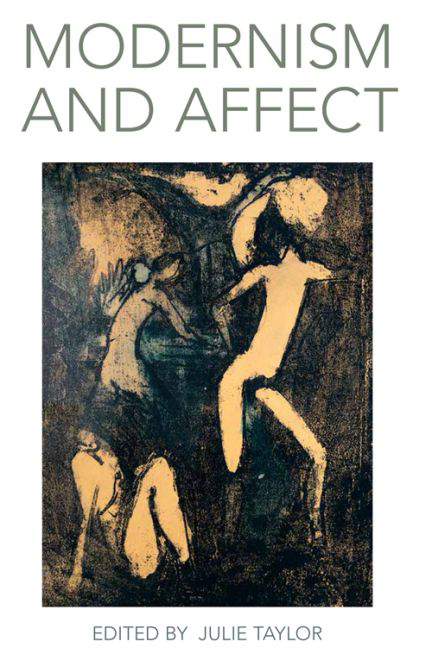Book contents
- Frontmatter
- Contents
- List of Illustrations
- Acknowledgements
- Notes on Contributors
- Introduction: Modernism and Affect
- 1 Mind, Body and Embarrassment in Henry James's The Awkward Age
- 2 The Trauma of Form: Death Drive as Affect in À la recherche du temps perdu
- 3 Logic of the Heart: Affective Ethical Valuing in T. E. Hulme and Max Scheler
- 4 The Line that Binds: Climbing Narratives, Ropework and Epistolary Practice
- 5 The Amplification of Affect: Tension, Intensity and Form in Modern Dance
- 6 Love and the Art Object
- 7 Animating Cane: Race, Affect, History and Jean Toomer
- 8 Fear and Precarious Life after Political Representation in Baudelaire
- 9 Bloom-Space of Theory: The Pleasure and the Bliss of Gerty MacDowell
- 10 From Odysseus to Rotpeter: Adorno and Kafka, Mimicry and Happiness
- 11 Making Happy, Happy-making: The Eameses and Communication by Design
- Index
2 - The Trauma of Form: Death Drive as Affect in À la recherche du temps perdu
Published online by Cambridge University Press: 15 September 2017
- Frontmatter
- Contents
- List of Illustrations
- Acknowledgements
- Notes on Contributors
- Introduction: Modernism and Affect
- 1 Mind, Body and Embarrassment in Henry James's The Awkward Age
- 2 The Trauma of Form: Death Drive as Affect in À la recherche du temps perdu
- 3 Logic of the Heart: Affective Ethical Valuing in T. E. Hulme and Max Scheler
- 4 The Line that Binds: Climbing Narratives, Ropework and Epistolary Practice
- 5 The Amplification of Affect: Tension, Intensity and Form in Modern Dance
- 6 Love and the Art Object
- 7 Animating Cane: Race, Affect, History and Jean Toomer
- 8 Fear and Precarious Life after Political Representation in Baudelaire
- 9 Bloom-Space of Theory: The Pleasure and the Bliss of Gerty MacDowell
- 10 From Odysseus to Rotpeter: Adorno and Kafka, Mimicry and Happiness
- 11 Making Happy, Happy-making: The Eameses and Communication by Design
- Index
Summary
Violence appears with articulation. (Derrida 2001: 185)
In the opening pages of Civilisation and Its Discontents (1930), a text not commonly cited as a Freudian manifesto on affect, Sigmund Freud recounts how his friend Romain Rolland described religious sensation as a ‘peculiar feeling’. In a section indicative of Freud's methodology that, at times, can appear startlingly unscientific – it is unclear whether this anecdotal speculation is offered as cool empirical fact – Freud communicates a written correspondence that he had with his friend over the affect that has its origins in the religious: ‘It is a feeling which he [Rolland] would like to call a sensation of eternity, a feeling as of something limitless, unbounded, something “oceanic”’ (1964: 64). Freud confesses that he ‘cannot discover this “oceanic” feeling’ himself, and admits the difficulty that such experiences pose to the psychoanalytic instinct to classify and pathologise. Rolland's conception of the ‘oceanic’ feeling as a dissipation into the eternal and molecular is interpreted by Freud in terms of his ego economy; Freud speculates that this ‘oceanic’ feeling is nothing more than an example of a primitive-ego that has never been forced to accept the prohibitions of the reality principle. It is further psychoanalysed by Freud as a return to the pre-oedipal stage of infantile narcissism where a child has not yet negotiated the traumatic difference between its desires and the external world. Therefore, Rolland's interconnected transcendental vision is, for psychoanalysis, nothing more than the traumatic moment when the child realises its survival in a threatening world is dependent upon the other. If the oceanic feeling offers affective possibilities, psychoanalysis reads this affective potentiality in terms of a broader theory of infantile sexuality. Freud voices his dissatisfaction at the limits of psychoanalysis in explaining both recondite and sensory phenomena; as he writes, ‘it is not easy to deal scientifically with feelings’ (ibid.: 65).
- Type
- Chapter
- Information
- Modernism and Affect , pp. 39 - 55Publisher: Edinburgh University PressPrint publication year: 2015



